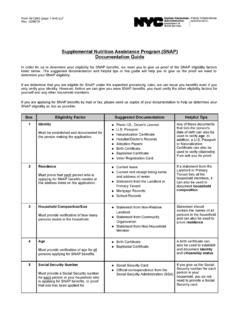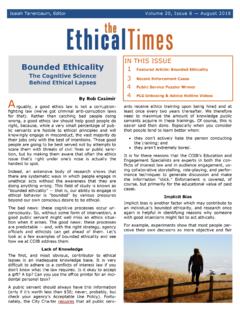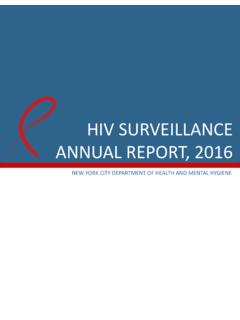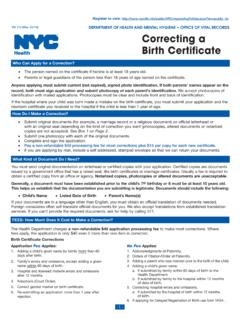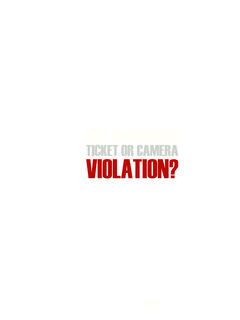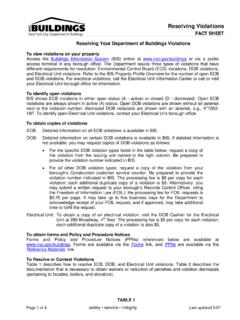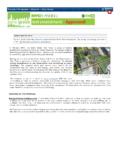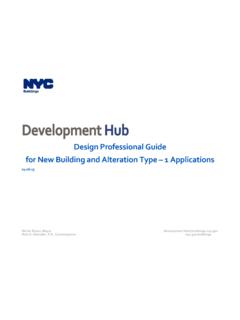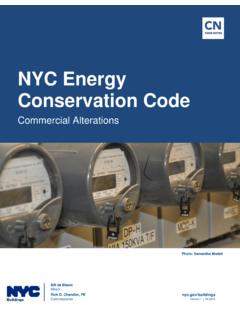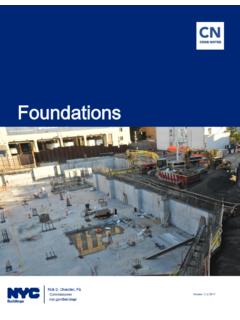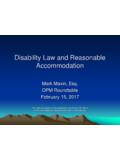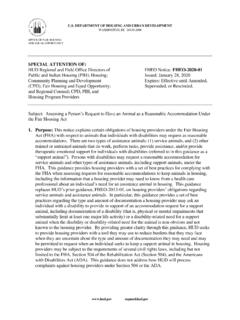Transcription of Guidance for Employers on Equitable Implementation of ...
1 Commission on Human Rights 12/15/2021 1 Bill de Blasio, Mayor Annabel Palma, Chair and Commissioner @NYCCHR Guidance for Employers on Equitable Implementation of COVID-19 Vaccine Requirements The New York City Commission on Human Rights is a resource to help Employers strengthen their business, become more inclusive Employers , and conform their employment practices to the New York City Human Rights Law (NYCHRL). As a result of the public health crisis posed by COVID-19 and the effectiveness of available vaccines against COVID-19 infection, many Employers in New York City already require their employees to show proof of vaccination against COVID-19. Beginning December 27, 2021, most employees in New York City will be required to provide proof of vaccination against COVID-19 in order to enter their workplaces. New York City Employers with four or more employees are covered by the NYCHRL. This document provides Guidance to covered Employers on how to ensure Equitable Implementation of vaccine requirements for their employees, independent contractors, and interns.
2 1. PROHIBITION ON DISCRIMINATION When implementing vaccine requirements, Employers should take care that their policies and practices do not treat employees differently because of their race, national origin, disability, gender, religion/creed, age, or any other characteristic protected by the NYCHRL. For example, Employers should not: Scrutinize proof of vaccination more closely when it is provided by employees of a particular race, national origin, or religion based on the perception that people in those groups are less likely to be vaccinated; Require proof of vaccination only for older employees or employees with disabilities based on the belief that COVID-19 is more dangerous for them; or Refuse to accept certain types of valid proof of vaccination, such as official immunization records from countries outside the United States or photographs of CDC vaccination cards. 2. reasonable ACCOMMODATIONS When applying vaccine requirements, Employers must consider requests for reasonable accommodations from employees who need them because of disability, pregnancy, childbirth, lactation, religious beliefs or observances, or status as a victim of domestic violence, stalking, or sex offenses.
3 If an employee requests an exception to a vaccine requirement or additional time to provide their proof of vaccination for one of these reasons, their employer must engage with them in a cooperative dialogue, or a good faith discussion, to see if a reasonable accommodation is possible. reasonable accommodations can take many forms. For example, an unvaccinated employee could work remotely, submit to regular testing for COVID-19 infection and wear personal protective equipment, change their work station or work schedule to avoid close contact with coworkers or customers, and/or take a leave of absence. Employers do not have to grant any reasonable accommodation that would cause a direct threat to other employees or customers, or to the requester, or otherwise impose an undue hardship on the employer s business. Examples of accommodations that are likely to pose a direct threat include accommodations that would allow an unvaccinated employee to engage in a high-risk activity, such as yelling or exercising, while in close proximity to others, or to work in close proximity to high-risk individuals.
4 If there is no reasonable accommodation that would enable an unvaccinated employee to continue performing their job duties without posing a direct threat or an undue hardship, their employer can offer a leave of absence until the employee is able to provide proof of vaccination, or until it is otherwise safe for them to return to work. Employers do not need to pay employees during a leave of absence unless the employer pays other workers who are unable to work for similar reasons. Commission on Human Rights 12/15/2021 2 Bill de Blasio, Mayor Annabel Palma, Chair and Commissioner @NYCCHR Employers responding to reasonable accommodation requests from employees regarding vaccine requirements should adhere to the following principles regarding whether and when to request supporting documentation: Employees who are seeking reasonable accommodations because of a disability, pregnancy, childbirth, or lactation can be asked to provide a note from their medical provider.
5 Employees who are seeking reasonable accommodations because of their religious beliefs should not be required to submit supporting documentation unless their employer has an objective basis to question the sincerity of the religious basis for the employee s inability to show proof of vaccination. However, employees may be asked to explain the religious nature of their belief. Note that the NYCHRL protects not only employees who belong to organized religions, such as Buddhism, Christianity, Hinduism, Islam, and Judaism, but also employees who have religious, ethical, or moral beliefs that are sincerely held with the strength of religious views. The law does not protect social, political, or economic views, or personal preferences. Employees who are seeking reasonable accommodations because of their status as a victim of domestic violence, sex offenses, or stalking can be asked to provide a note from a related service provider, such as a social worker, attorney, doctor, or clergy member, supporting their inability to show proof of vaccination.
6 3. RETALIATION Employers are prohibited from retaliating against employees because they requested an accommodation, opposed discrimination, or filed or assisted with a claim under the NYCHRL. Retaliation includes any action that is likely to discourage employees from exercising their rights. It covers not only firing or demoting an employee, but also, for example, assigning them to less favorable shifts or subjecting them to harassment. For additional information about your responsibilities as an employer under the NYCHRL, visit to learn more or sign up for a free workshop.
